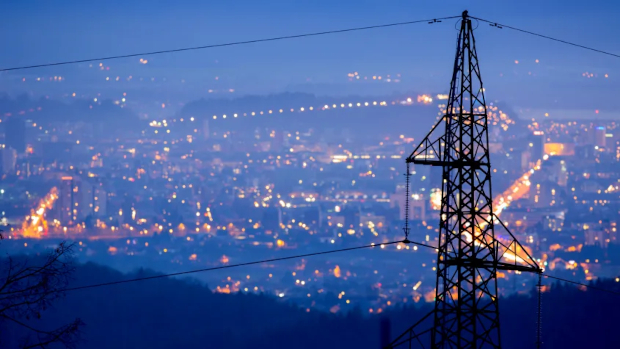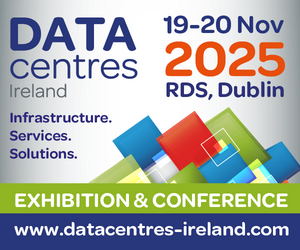
CSO figures shine a light on the impact of data centres
Here’s a thought experiment. Try and picture the electricity consumption of all the thousands of homes in urban Ireland’s 250 cities and towns where millions of people live.
Now, ask yourself how a country could find itself in a situation where it has allowed something which didn’t really exist here 20 or so years ago to consume more electricity than all its urban towns and cities. It seems unimaginable. It pretty much is.
And yet, Ireland has managed to do just that due to its unhealthy fixation with data centres. And it is. Unhealthy. Consider Ireland’s commitment to reduce greenhouse gas emissions by 51% by 2030 and shift to an energy mix that is much more reliant on renewables. Think how much easier that would be to achieve if Ireland hadn’t housed around 80 (there’s no definitive figure) data centres which consume 21% of its electricity, according to the Central Statistics Office. And there are plans to build even more.
The rate of increase in electricity consumption by data centres is phenomenal. In 2015, they accounted for only 5% of total electricity consumption. Last year, they surpassed the electricity demand of rural households. This year, they have overtaken urban household consumption. It is estimated that they will account for 27% of all electricity demand by 2028 and up to 30% by 2030.
Data centre electricity demand has grown so rapidly that they are now a disproportionate presence in the CSO’s ‘large energy users’ group, accounting for 70% of its total consumption. When you consider how ‘young’ data centres are compared to other large energy industries, that’s a shocking statistic.
As The Irish Times noted in its story about the CSO figures: “The concern is that the rapid increase in the sector’s energy requirements hinders the State’s ability to move away from fossil fuel-powered generation as demand grows faster than the State can bring renewable sources of power online”.
Suprassing expectations
And it’s a perfectly valid concern. Just as data centres have surpassed our consumption in urban households, they are threatening to take away any gains Ireland might make to protect the planet and combat climate change by switching to renewable energy. The more energy they require, the less renewable energy there will be for us in the country’s overall energy mix and the more we will be forced to rely on dirty, expensive, fossil-fuel sources for our electricity. In effect, they will displace us in the renewable energy queue.
You could be forgiven for describing this situation as an act of self-sabotage by the government but as its actions and decisions are affecting everyone in the country and Ireland’s efforts to combat climate change, it might be more accurate to label it ‘environmental vandalism’.
People claim that the economic benefits of siting data centres in Ireland outweigh the environmental concerns but the argument seems fairly threadbare. The construction of data centres does not require huge numbers of workers and they don’t need a lot of people to operate them afterwards. Are there downstream benefits? The data itself is sourced from any number of countries and shared with people and companies in those territories. I can’t see the benefit for a company in Ireland being closer in proximity to data about people in Germany than companies in Germany, especially when the data can be transported at such rapid speeds back to whence it came. In other words, where the data is housed is not economically detrimental to them. We all know that if it was, the data would not be housed here in little Ireland off the coast of Europe but there, wherever that might be.
And being responsible for the security and availability of data for companies and people in other countries brings its own costs. Just last week, the Defence Policy Review stated that Ireland was “increasingly susceptible” to cyber attacks and attacks on critical infrastructure from state and non-state groups.
“As a global centre for leading edge technology, and as a geographical hub for data centres and transatlantic fibre optic cables, Ireland will continue to present a valuable target for espionage activity and the political influence and information operations that facilitate it,” the review stated.
Again, is it worth it? Why does Ireland need to punch so far above its weight when it comes to data centres when the environmental (and security) cost is so high? I could understand it if Ireland’s adoption of renewable energy was ahead of schedule and the country was using the surplus to support the expansion in data centre numbers. But that’s not the case. There is no surplus. The greater likelihood is of a deficit because Ireland’s renewable energy capacity won’t be able to keep pace with the adoption of data centres.
It does not compute.






Subscribers 0
Fans 0
Followers 0
Followers